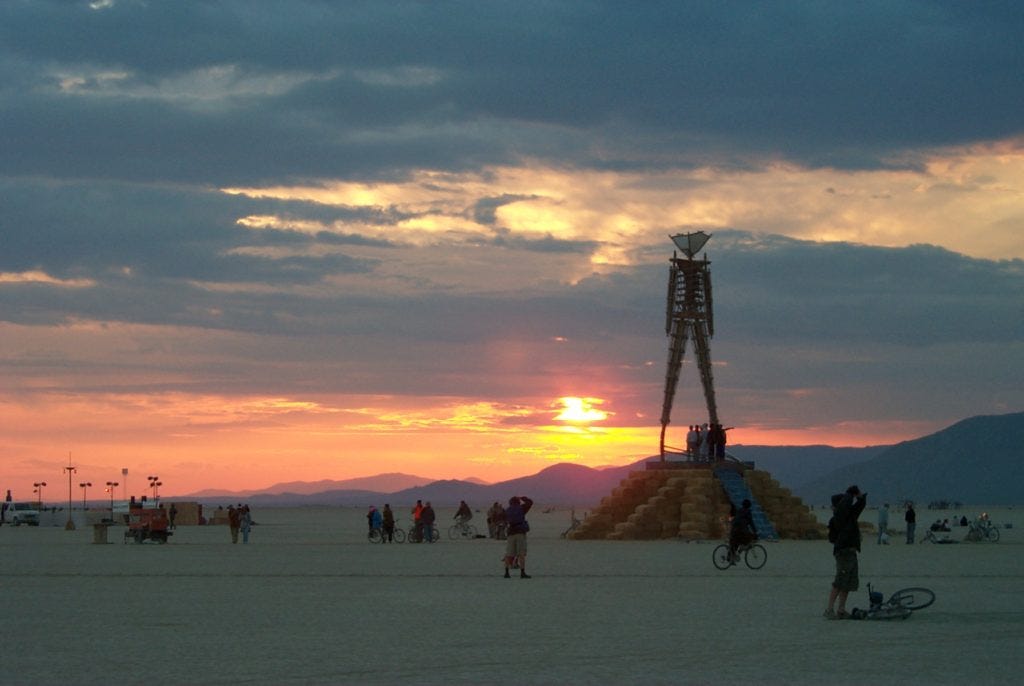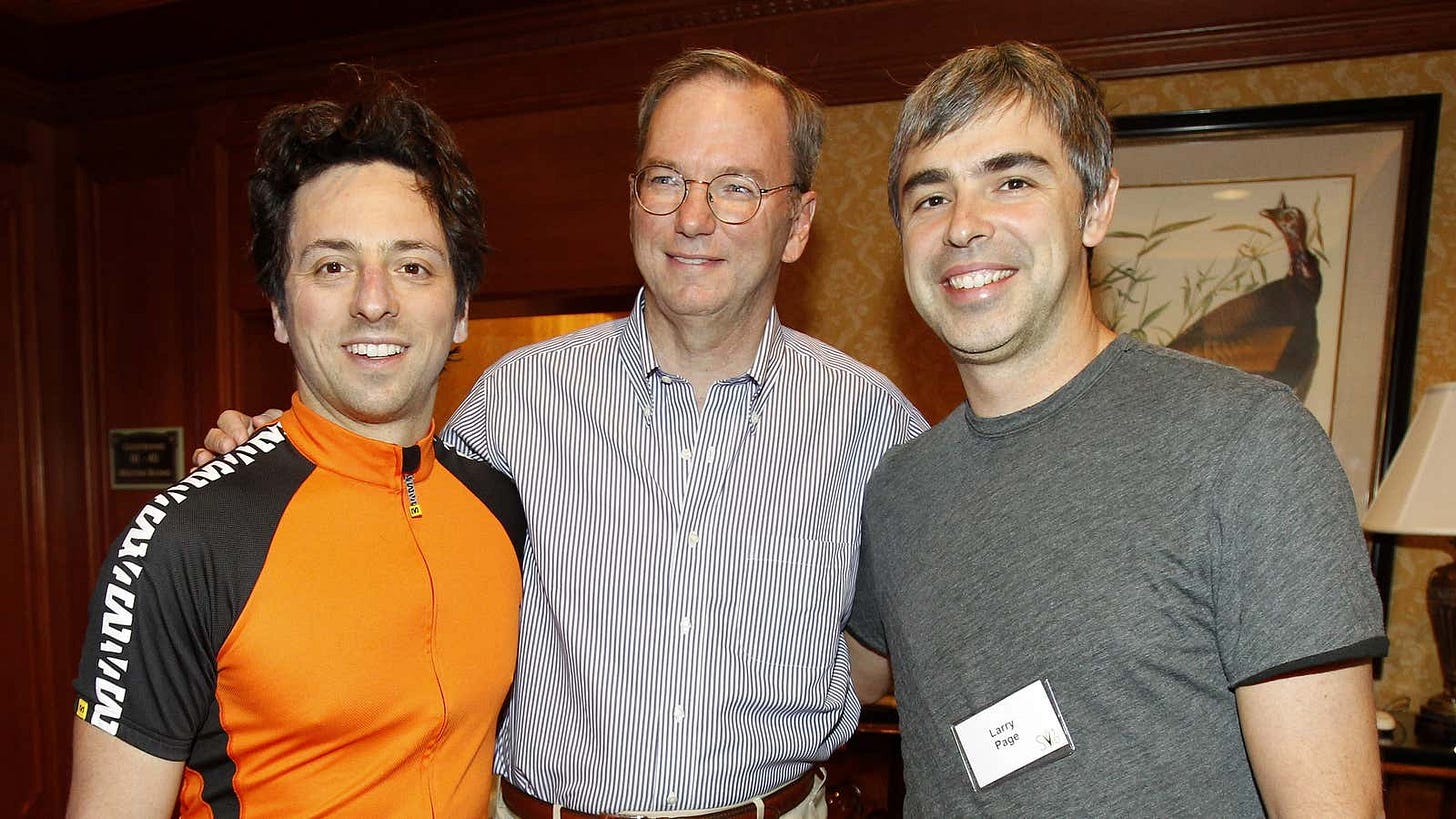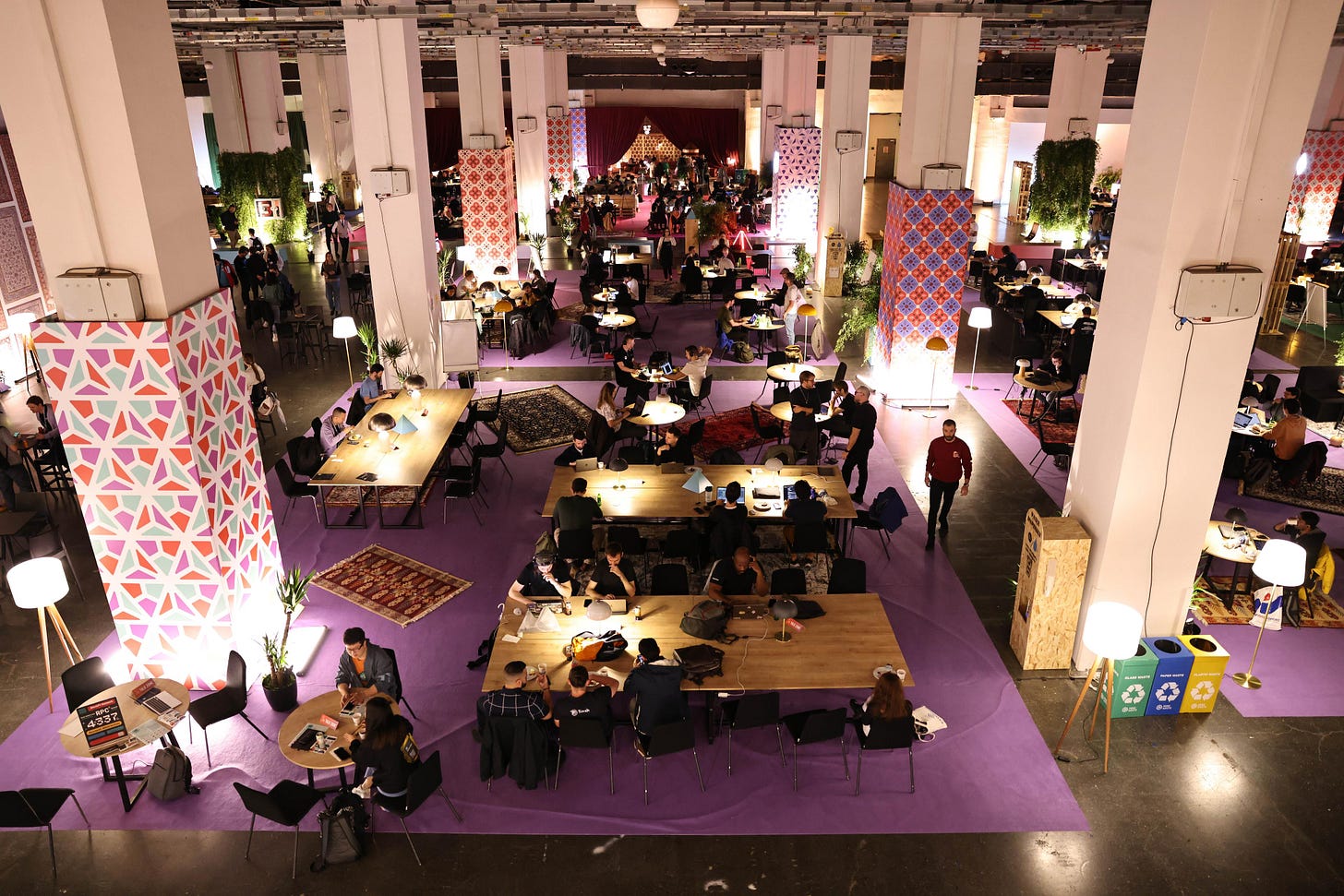Read This To Decide If Going To That Conference Is Worth It
In this piece, I explain a simple equation you can use to decide whether going to ETHDenver, or any other event, is worth your time, money, and energy.
I’ve spent a crazy amount of time thinking about how to create valuable, even life-changing experiences for people. So if you’re struggling to decide whether to make the time and financial investment to attend a particular event, read this.
I want to start this guide with two tweets from my colleagues in the crypto space.
What you need to know to understand these two tweets is that…
There’s a running joke that the only product market fit that the space has found so far is events.
And building on that joke, people say that crypto events are basically just excuses to party.
As someone who has been to something like a dozen major crypto conferences in the past 2.5 years, I can see why these jokes resonate.
Going to a crypto conference without a clear purpose is almost always a terrible idea.
But going to an event—whether a crypto conference; an event for another industry or community; a wedding; or something else—can be massively worth it if you do it right.
So how do you do it right?
Let’s dive in.
The Net Value equation
Here’s how I think about it:
Value of attendance - Costs of attendance > 0 = Win
The higher the number the greater the win.
Let’s dive into “Value” and “Costs.”
What is the Value of attending an event?
This is up to you to decide, but generally if you’re a builder (working on a project you care about that needs money, collaborators, good ideas to grow)
People: Your project needs one or more of the following: collaborators, beta testers, customers. The right conference can help you secure 1 or more of these. The right conference can also plug you into a network where, after attending the conference, it becomes far easier to ask for an intro to someone in the network. It can also help you maintain and deepen existing connections.
Ideas: You may be looking for a new project to build or ideas on how to take your project to the next level. The right conference can give you the right inspiration through talks, meals, and co-learning sessions. It can also help you assess whether your project could find unique product market fit.
Funding: Any non-toy project needs funding. The right conference can help you meet funders.
It’s important to think long term about the outcomes of a conference. What you learn and who you meet at a conference may not fruit into something clearly tangible for months or years.
Also, depending on the event, other types of “value” to account for could include morale/inspiration to keep building, and health boost if the food and wellness activities represent an upgrade on your normal routines.
What are the Costs of attending an event?
Opportunity Cost (The money you could be making doing a more profitable endeavor at home or elsewhere)
Travel Costs (e.g. flights, Ubers)
Housing Costs (cost to live near the conference, cost of not renting out your place while you’re at the conference)
Ticket Costs (cost to access the event grounds)
Food Costs (if not included in Ticket Costs)
Health Costs (physical exhaustion and other hits to your health that result from, perhaps, downgrading your nutrition and workout routines)
If any of these costs are reimbursed, mark them as 0.
Also, depending on the event, other types of “costs” to account for could include physical exhaustion and other hits to your health that result from, perhaps, downgrading your nutrition and workout routines..
So when I evaluate whether to go to a conference, I make this (rough) calculation:
(Expected value of the people I meet +
Expected value of the ideas I am able to forage +
Expected funding I am able to secure)
>
(Opportunity Cost +
Travel Costs +
Housing Costs +
Ticket Costs +
Food Costs +
Health Costs)
=
?
Applying this Net Value formula to two events I’ve gone to
Let me give you three examples of events I went to to help you understand how I personally apply this formula:
EXAMPLE 1: NFT NYC 2022
VALUE
People: I met 1-2 people who were relevant to the projects I was working on.
Ideas: I attended 2-3 talks that are at least mildly interesting.
Funding: Met no funder types.
COSTS
Opportunity Cost: Only a couple hundred dollars worth of productivity, since I ended up only going for one day and my office was near the venue.
Travel Costs: A couple Uber rides.
Housing Costs: 0.
Ticket Costs: A few hundred dollars.
Food Costs: 0.
Health Costs: 0
NET VALUE = (A few hundred dollars worth of relationships and ideas) - (A few hundred dollars of costs) = Either break-even or slightly negative value
EXAMPLE 2: Zuzalu (a popup village that took place in Montenegro)
VALUE
People: I met dozens of people I could see myself collaborating with long-term. Deepened relationships with dozens of existing connections.
Ideas: I explored zero knowledge technologies and longevity biotech for the first time ever. I fell in love with Afrobeats and the opportunity in Africa. I realized how powerful popup villages (which I call innovation playgrounds) are for accelerating careers and innovations.
Funding: Met a number of people who could fund future projects of mine.
I was also massively inspired to improve my wellness regime and developed greater optimism about the future.
COSTS
Opportunity Cost: Zero because I had a remote job that was fine with me coworking out of Montenegro.
Travel Costs: A couple thousand dollars round trip + 30 dollar ubers a few times a week.
Housing Costs: $1500 a month (which was quite low for the quality of lodging; my lease in the US expired just before heading to Montenegro too)
Ticket Costs: Included in housing cost.
Food Costs: I ended up only spending ~$30 a day because breakfast was covered in housing costs.
NET VALUE = (Arguably hundreds of thousands of dollars of value in relationships, ideas, and inspiration) - (~$6k) = Hundreds of thousands of dollars in net value?!
The whole experience felt like a miracle to be a part of.
EXAMPLE 3: CES 2024
VALUE
People: During the two days I went to CES in Vegas just now in Early January 2024, I met a handful of new people who were relevant to the projects I am working on, and deepened relationships with a lot of other people I want to work with in 2024 and beyond.
Ideas: The whole experience gave me lots to think about as it relates to experience design. I’m leaving very inspired.
Funding: Met 1-2 funder types.
COSTS
Opportunity Cost: Minor, since the relationships were aligned with my main work.
Travel Costs: A few Uber rides. I happened to be in town already!
Housing Costs: 0.
Ticket Costs: 0, because I got a free ticket from an exhibitor.
Food Costs: $100.
Health Costs: Negligible.
NET VALUE = (Easily several thousand dollars worth of relationships and inspiration) - (A few hundred dollars of costs) = Thousands of dollars of net value
One more example of this Net Value formula in action: Google and Eric Schmidt at Burning Man
In the beginning of the 2000s, Larry Page and Sergei Brin were struggling to manage their quickly growing search engine startup: Google.
They badly needed a CEO to “discipline Google’s flamboyant, self-indulgent culture, without wringing out the genius”—ultimately help Google get to the next level.
Larry and Sergei, big fans of the multi-day event Burning Man, which could be grueling and thus a test of character, decided to treat attendance at the event as a key criterion of whether someone was fit to lead Google as the next CEO.
They challenged all of their top CEO candidates to join them in the sweltering heat of the Nevada desert—and only one candidate: Eric Schmidt decided to join as an attendee.
The time Larry and Sergei spent with Eric during Burning Man convinced them that Eric was the right person for the job, so they hired him in 2001.
In 2001, Google’s revenues were rumored to be about $100 million. A decade later, when Schmidt stepped down from the CEO role and handed it back to Page, the company’s revenues were nearly $40 billion.
That’s a return of almost 40,000 percent! (And think about how Google’s survival was not even guaranteed if they didn’t find the right person to scale the company. Flatlined revenue is rarely an option long-term.)
Now, think about how much wealth Eric generated for himself by stepping into the role. He was worth 0 billion dollars and now he’s worth 20 billion. Beyond wealth, his role as a former head of one of the biggest companies ever has led to key roles in the White House and many leading global institutions. Eric is easily one of the most powerful people in the world today.
It may have been painful for Eric to endure the sometimes physical and psychological extremes of Burning Man, but the unbelievable net value of him attending that festival is self-evident.
A few more things to keep in mind as you explore attending conferences
As you think about what events you’re thinking of attending, use this framework to get clarity on how worth it the event will be.
A few things to note:
Be careful about putting too much value in the fact that a conference is in a city you have been meaning to visit. You usually won’t have time to experience the city like a tourist if you are trying to maximize on learning and connections at a conference. This is why I didn’t put FUN/LEISURE as a category of value in the Value part of the Net Value equation.
A free ticket is not free. There are many better things to do with your time than go to a free event that doesn’t provide much value in connections, ideas, or funding if you’re going as a builder. On the other hand, a ticket of several hundred or even several thousand dollars can be well worth it if the connections, ideas, etc are life-changing.
If you’re speaking at the conference, this can increase the likelihood of connections, including funder connections. But make sure you’re not just attending an event as a speaker just because you feel like it’s an ego boost. You could fly all the way out to speak at an event and get your spiel out the the audience, but the audience could be the wrong audience.
If an event has really good coworking spaces, the opportunity cost is a lot less if you’re a remote worker. Devconnect 2023 in Istanbul had great coworking spaces, which made Devconnect a lot more attractive for people who are busy with deadlines for their work but also want to connect and learn.
Should you go to ETHDenver 2024?
One question a lot of my friends and peers are asking right now is:
“Should I go to ETHDenver 2024?” (ETH Denver is a huge crypto gathering taking place in Denver from late February thru early March 2024).
Well, at this point you should realize: it depends.
For me, I’m excited to spend a week and a half in Denver during the ETHDenver time period because of the net value I (and my team) will likely get from being in Denver.
We are cohosting a 7-day event during that time period that benefits a lot from being adjacent to ETHDenver, so we are grateful for ETHDenver being a Schelling point for innovators we want to know and support. We expect to build valuable connections and accumulate lots of learnings that will contribute to making 2024 a great success for our team.
Now, back to you. Is it worth it to go to ETHDenver? Again, it depends.
Will going to ETHDenver and/or the side events (like the one my team is hosting) provide more value than the cost?
Are you clear on what kinds of people you need to meet to accelerate your career and/or project?
The travel, housing, and food costs are going to be likely a couple thousand dollars if you stay a week. Then adding on the opportunity cost of your time there, is it worth it? And is it worth it to put that toll on your body?
Do at least some napkin math so you feel good about your decision to go, or not go!
Overall, I hope this guide is helpful for you.
No matter how many weekend conferences, popup villages, day events, weddings, and festivals you decide to attend this year, I hope they provide you make the most of them and they provide you a ton of NET value 🙂









Super helpful! Will make sure to use this formula for every conference/wedding I plan to go to this year — great one G!
Great breakdown, can be applied for just about any conference